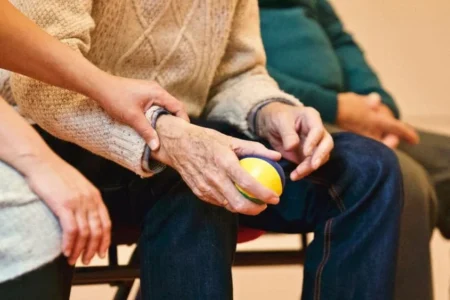Understanding Codependency: What Are the Signs, Causes, and Recovery
- Updated on: Oct 9, 2024
- 3 min Read
- Published on Sep 2, 2023

In today’s intricate world of human relationships, understanding codependency and finding valuable resources like books on codependency is not only valuable but also essential. Codependency is a complex issue that can affect individuals across various facets of their lives, including personal relationships, family dynamics, and even professional settings. To navigate this intricate topic comprehensively, we will delve into the nuanced signs, underlying causes, and the intricate process of recovery associated with codependency.
Signs of Codependency
Recognizing codependency begins with understanding its distinct signs and behaviors, which often manifest in individuals who are grappling with this condition. Some common signs include:
Excessive Caretaking:
Codependent individuals tend to prioritize the needs and desires of others over their own, often to the detriment of their own well-being.
Low Self-Esteem:
Many codependents suffer from a poor self-image, seeking validation and self-worth through the approval and validation of others.
Difficulty Setting Boundaries:
Establishing and maintaining healthy boundaries can be a significant challenge for codependents, often leading to them becoming enmeshed in the problems and emotions of others.
People-Pleasing:
Codependents habitually go to great lengths to keep others happy, sometimes at the expense of their own needs and desires.
Fear of Rejection:
A deep-seated fear of abandonment or rejection often underlies codependent behavior, driving individuals to extremes to avoid these feelings.
Lack of Autonomy:
Some codependents may feel emotionally or financially dependent on others, which can further entrench their codependent tendencies.
Causes of Codependency
Understanding the root causes of codependency is crucial for gaining insight into why some individuals develop these patterns. While the origins of codependency can vary from person to person, several common contributing factors include:
Dysfunctional Family Dynamics:
Growing up in a family marked by addiction, mental illness, or emotional instability can significantly contribute to the development of codependent behaviors.
Traumatic Experiences:
Childhood trauma, such as physical, emotional, or sexual abuse, can lead individuals to adopt codependent behaviors as a coping mechanism to survive challenging circumstances.
Lack of Healthy Role Models:
A lack of positive role models who demonstrate healthy relationship dynamics can leave individuals ill-equipped to navigate relationships in a balanced and healthy manner.
Low Self-Esteem:
Codependency often arises from a negative self-image, where individuals believe they are unworthy of love and must earn it through codependent behavior.
Enabling Behaviors:
Codependency can develop when someone consistently enables another person’s destructive habits, inadvertently reinforcing the cycle of dependency and caretaking.
Recovery from Codependency
Recovery from codependency is a challenging yet incredibly rewarding journey toward healthier relationships and a stronger sense of self. Here are the steps to initiate and progress through the recovery process:
Self-Awareness:
The first and most critical step is acknowledging the problem. Self-awareness allows individuals to recognize their codependent behaviors and understand how they impact their lives and relationships.
Seek Professional Help:
Given the complexity of codependency, seeking professional therapeutic intervention is often necessary. Therapy can provide a safe space to explore the root causes of codependency, develop healthier coping strategies, and improve self-esteem.
Set Boundaries:
Learning to establish and maintain healthy boundaries is a pivotal aspect of codependency recovery. This skill enables individuals to protect their well-being while respecting the boundaries of others.
Self-Care:
Prioritizing self-care activities such as exercise, meditation, pursuing personal interests, and practicing self-compassion can boost self-esteem and reduce codependent tendencies.
Build a Support System:
Engaging with supportive friends and family members who understand the recovery process can be immensely beneficial. Additionally, participating in support groups specifically focused on codependency can provide a sense of community and shared understanding.
Practice Patience:
Recovery from codependency is a gradual process, and setbacks are not uncommon. Being patient with oneself and accepting that progress may have its ups and downs is essential. What truly matters is the commitment to change and personal growth.
Reconnect with Your Authentic Self:
As codependency begins to diminish, individuals can reconnect with their authentic selves. This journey involves discovering one’s own needs, desires, and values, and learning to honor and prioritize them.
Conclusion
In summary, understanding codependency is a vital step toward breaking free from its patterns and developing healthier, more fulfilling relationships. By recognizing the signs, understanding the causes, and actively engaging in the recovery process, individuals can embark on a transformative journey that leads to greater self-awareness, enhanced self-esteem, and the ability to form and maintain balanced, meaningful connections with others. Recovery from codependency is a courageous step towards reclaiming one’s autonomy, happiness, and personal growth.












